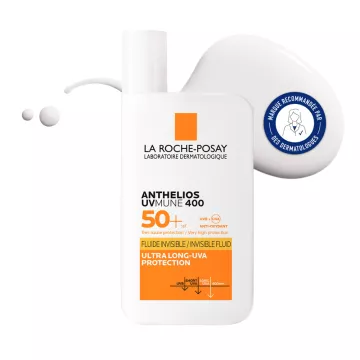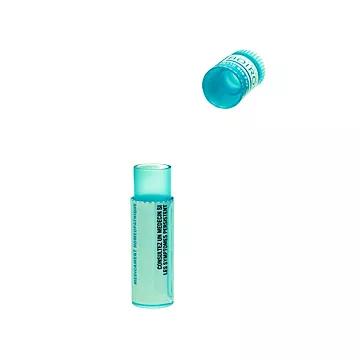

Exposure to the sun, while beneficial to health by promoting vitamin D synthesis, can also lead to a variety of skin reactions, including solar allergy. This condition, also known as photodermatosis, is characterized by an excessive immune reaction of the skin to ultraviolet (UV) rays, leading to symptoms ranging from mild rashes to more severe reactions such as intense itching and lesions. Although relatively rare, solar allergy can significantly affect the quality of life of sufferers, limiting their ability to enjoy outdoor activities and exposing them to an increased risk of skin damage.
What is sun allergy and how does it manifest itself?
Solar allergy, also known as photodermatosis, is a skin reaction that occurs after exposure to the sun. Symptoms can range from mild redness to rashes, itching, blistering or peeling of the skin. In some cases, symptoms may include fatigue and headaches, signaling a systemic reaction.
What causes sun allergy?
Solar allergy can be caused by abnormal sensitivity to the sun's UV rays. This sensitivity may be due to genetic factors, to the use of certain medications, or to exposure to chemical substances, such as perfumes or preservatives, which react under the effect of UV rays. Sudden exposure after a long period without contact with the sun can also trigger a reaction.
How is a sun allergy diagnosed?
The diagnosis of a sun allergy is usually made by a dermatologist through a physical examination and the patient's clinical history. Specific tests, such as phototesting, can be carried out to determine the skin's sensitivity to different wavelengths of light.
What treatments are available for sun allergy?
Treatment for sun allergy aims to relieve symptoms and prevent future reactions. Treatment options include the use of corticosteroid creams to reduce inflammation, antihistamines to control itching, and avoidance of sun exposure. In some cases, light desensitization therapy, called phototherapy, may be recommended to acclimatize the skin to sun exposure.
How can sun allergy be prevented?
Prevention of sun allergy is based on sun protection. It's advisable to use a broad-spectrum sunscreen with a high SPF, to wear protective clothing, and to seek shade during hours of high sun exposure. Avoiding cosmetic or medicinal products known to increase light sensitivity is also crucial.
Can sun allergy disappear over time?
For some people, sun allergy can diminish or disappear over time, especially if preventive measures are taken and sun exposure is gradually increased to accustom the skin. For others, however, the allergy may persist and require ongoing management.
Are there any natural remedies for sun allergy?
While it's essential to consult a doctor for appropriate treatment, some natural remedies can help soothe skin irritated by sun allergy. Applying aloe vera or cold compresses can reduce inflammation and itching. However, the effectiveness of these methods may vary from person to person.
Is sun allergy more common in some people?
Yes, although sun allergy can affect anyone, it is more common in fair-skinned people or those with a family history of allergic reactions. People using certain medications or cosmetics that increase sensitivity to the sun are also at greater risk.
Is it possible to develop a sun allergy even if you've never had one before?
Yes, it's quite possible to develop a sun allergy even if you've never had one before. Changes in the environment, the use of new medications or skin care products that can increase the skin's sensitivity to the sun, and changes in the immune system can trigger a sun allergy at any age.
What's the difference between a sun allergy and sunburn?
Although the symptoms may seem similar, sun allergy and sunburn are two distinct skin reactions to the sun. Sunburn is a skin burn caused by excessive exposure to UV rays, which damages the outer layer of the skin. Sun allergy, on the other hand, is an immune system reaction to sun exposure, which can occur even after a short period of exposure and is not necessarily linked to UV skin damage.
Are children more likely to suffer from sun allergy?
Children can indeed develop a sun allergy, although this is less frequent than in adults. As children's skin is more delicate, it's crucial to take appropriate sun protection measures. In the event of symptoms of sun allergy in a child, it is advisable to consult a pediatrician or dermatologist for appropriate diagnosis and treatment.
Are there specific tests to confirm a sun allergy?
Yes, specific tests can help confirm a sun allergy. The most common test is the photopatch test, in which small areas of skin are exposed to different wavelengths of light after the application of photosensitizing substances. If a reaction occurs, this may indicate a solar allergy. A dermatologist can also perform photo-provocation tests, exposing the skin to sunlight under controlled conditions to observe reactions.
Vitamin D and sun allergy: how to manage the need for sun exposure?
Vitamin D is essential for bone health and optimal immune system function, and exposure to the sun is an important natural source of this vitamin. For people suffering from sun allergies, it is advisable to strike a balance between protection against allergic reactions and the need for sun exposure for vitamin D synthesis. The use of vitamin D supplements may be an alternative for those who need to limit their exposure to the sun. Talk to a healthcare professional to establish a plan that meets your health needs while minimizing the risk of allergic reaction.